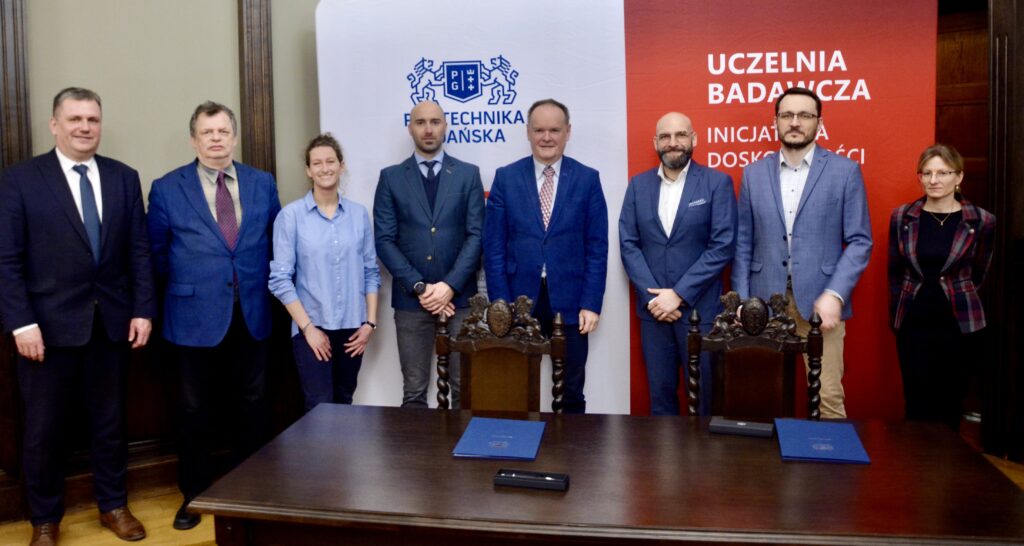The ceremony of signing the Consortium Agreement – Zero Waste Ports
The ceremony of signing the Consortium Agreement
5th of March, Professor Sławomir Milewski, Vice-Rector for Scientific Research of the Gdańsk University of Technology, and Mr. Adam Ślipy, CEO of Seatech Engineering, signed the Consortium Agreement for project Zero Emission Waste Collecting Vessel to Use in Ports and Close-to-Shore Areas called ZeroWastePorts.
The project will be carried out by a Polish-Taiwanese consortium that includes the Polish side Seatech Engineering – a design office and the Gdańsk University of Technology, and from the Taiwanese side – National Taiwan University and Ship and Ocean Industries R&D Center. The collaboration within ZeroWastePorts forms the ideal basis for cross-continental knowledge transfer by using design office knowledge, marine research, and testing infrastructure.
Consortium operates under the funding program of the 9th Polish-Taiwanese/Taiwanese-Polish Joint Research Call, where the Polish part is supported by The National Centre of Research and Development (NCBiR).
The ultimate aim of the ZeroWastePorts project is the initial design of the autonomous Waste Collecting Vessel (WCV) powered by electrical energy. The vessel’s primary function will be collecting waste from water and other ships. The ship will be adopted to operate both in open water and in difficult from a navigational point of view restricted areas (inside the harbor, marinas, inland waterways.
The specific project objectives are:
- Design the hull form with good stability, low fuel consumption, and excellent maneuvering abilities
- Development of the waste detection algorithms and autonomous sailing mode
- Design and optimization of the electric power system on-board the vessel
- Design of shore station for collecting waste and charging the vessel’s batteries
- Evaluation of the possibilities to introduce the concept of WCV worldwide to various harbors
The originality of the proposal is threefold: modularisation, autonomy, and electrification. In all these areas, the project will develop an input at an international scientific level.
The project activities will benefit from various research methods, including model tests and high fidelity CFD methods for evaluation of propulsion and maneuverability of the vessel, machine learning for waste detection and autonomous path planning, and a ship simulator for real-time ship response calculation.


